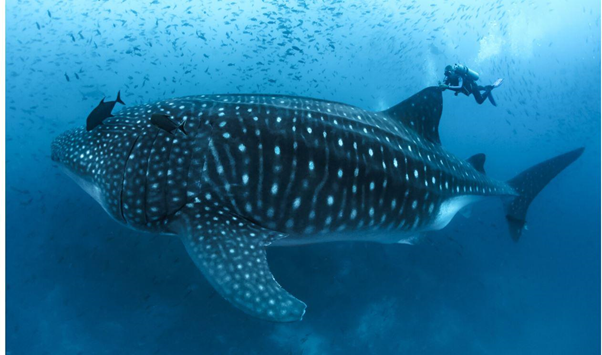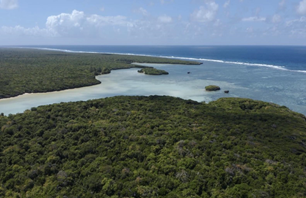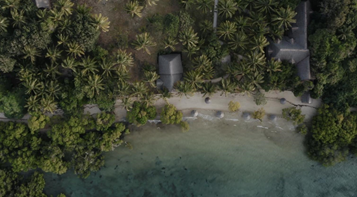· 8 min read
Mafia Island lies off the East Coast of Tanzania, opposite the Rufiji River delta and is located about eight miles south of Dar es salam City in the Indian Ocean. Mafia Island is formed of several islands most of which are uninhabited. Mafia Island was formed during a continental drift and up warping of the ocean floor.
The word Mafia comes from the Arabic word "Morfyeh" which means "group" or "archipelago". In Swahili language mahali pa afya (safe place/healthy/conducive place).
In Mafia Island, the indigenous people support their livelihood through fishing for food and commercial purposes. Because of the Marine Park in and around Chole Bay, most fishing took place in Mafia Island's north and north-east, as well as the south-east. The fishing in these locations, as well as all the way down to Okuza Island, is usually considered to be among the greatest in East Africa! All of the Pelagic Species can be found in this deep marine crescent of Mafia, which is almost unfished from September to March. These species include catches of sailfish, blue, black, and striped marlin, barracuda, wahoo, kingfish, giant trevally, yellowfin, dog-tooth tuna, dorado, five-fingered jack, rainbow runner, red snapper, billfish, kawakawa, rock cod, and others. The Mafia people also engage in tourism activities like snorkeling, show cruises, and sandbanks by providing services as boat captains, hoteliers, taxi drivers, and tour guides. The people of the mafia are reliant on the Indian Ocean for their daily livelihood.
The uniqueness and high marine biodiversity of the island that support fishers and livelihood are embroidered by the iconic whale shark that can be found in Mafia water. The commonly known name for whale sharks in the Swahili language is "Papa Potwe''. Mafia Island is the only home for the whale sharks in Tanzania, where you have the opportunity to see these magnificent creatures when visiting during North Monsoon i.e. October to March.
The Papa Potwe of Mafia Island are local residents who stay in the Mafia channel all year round i.e. they used to reside in the Island for their lifetime therefore, they do not completely migrate away from Mafia water.
Whale sharks are seen off the West Coast of Mafia Island during the North Monsoon where the wind blows the surface water and plankton towards the Island leading the whale sharks to concentrate in a small area. For the rest of the year, the plankton is dispersed by the South monsoon and the whale sharks spread out over a much larger area in search of food but remain in the general vicinity of the Island.
Whale sharks feeding aggregation seen in Mafia Island prey on plankton including small fish at the surface. They feed predominantly on one kind of zooplankton, the tiny lucifer shrimp that bloom in nutrient-rich waters in the mouth of the Rufiji delta. According to the report by the WWF in December 2019, the population of Whale sharks in Mafia Island is estimated to be 206 individuals, which has increased in comparison to 100 individuals in 2012. The number is expected to double in time although there is a lack of data on the current population status of Whale sharks in recent years. Hence population status of Papa Potwe in Mafia island should be one of the research priorities in safeguarding the existence of Whale sharks on the Island for proper management strategies.
Whale sharks are included on the IUCN Red List of Endangered, Threatened, and Protected Species. In 2016, they were designated as an endangered species. Their susceptibility stems primarily from their slow development rate; they reach maturity at the age of 30 years, and if not adequately managed, they could go extinct. However, a growing tourism industry and the existing fishing sector continues to threatening the livelihood of Papa Potwe in the world. The major threats include entrapment in fishing nets, injuries from boat trips, plastics in the ocean, meat and fin hunts. The Mafia people, on the other hand, have no history of killing whale sharks but rather, there is a confrontation between sharks and fishermen in searching for Lucifer shrimps which attract Papa Potwe and is used by fishermen as bait when trying to get small anchovies and mackerel. In some cases where the Whale shark is caught by the people of Mafia island, the Whale shark is released back into the ocean to continue with its life.

The presence of Papa Potwe has and continues to bring beneficial impacts to the people of Mafia Island. They are a prominent tourist attraction and one of the community's and Mafia District Authority's main sources of revenue. Ecologically Sharks are the apex predators in the food chain, and are not prey to any other creature. As a result, shark extinction could jeopardize the health of marine biodiversity and ecosystems, as a sharp decline in shark population would result in a spike in the population of other predators in the ocean, causing a rapid decline in the populations of smaller prey within the ocean.
From an economic perspective, Papa Potwe is a blessing to the fishermen as its presence increases the number of fishes in the ocean. This is because fish feed on parasites on their hosts as well as small bits of food that their hosts don't ingest. The Pilot fish for example has been one of the fish species said to have a mutual relationship with whale shark hence, other animals which might eat them will not come near whale sharks. This relationship between the two is an added advantage to fishermen as they always find a large shoal of fish playing in areas where whale sharks are located hence, it brings the reliable catch of fishes to fishermen.
This positive benefit from Papa Potwe's existence on the island has led to the growth of Mafia Island due to the increased income, thanks to ongoing fishery activities by the fishermen and an increase in the population of Whale sharks on the Island.
Also, it Fosters international relations between countries that come to visit the precious Papa Potwe in Mafia as touristic activities.
As whale shark tourism grows on Mafia Island, so do the employment opportunities for its residents through tour guides, boat drivers, hotel staff, and restaurant staff.
Papa Potwe tourism leads to the growth of Coastal people's tradition as well growth of Kiswahili language, dressing, foods, and cultural dances that are found in Mafia and hence provide recreation to the tourists.
Papa Potwe tourism can lead to increased indirect income due to a growing tourist sector that could improve the foreign investment in the island, bringing new developments such as infrastructure, schools, and health centers.
With a great economic and non economic valuation of the ecosystem services available at the island, it is indeed worth protecting the whale sharks and the surrounding ecosystem of the coast. The value of ecosystem services with a simple observatory cost and benefit analysis, shows that the socioeconomic and cultural benefits are way bigger and sustainable for the current and the future generations because of their wide range extending through tourism, coastal protection of foods by mangroves, and more.


Education is needed to understand the positive economic and social value whale sharks can bring to the people of Mafia Island. This includes understanding the positive and negative impacts of a growing tourism industry, its impact on the local population and how fishers can live in harmony with the whale sharks and what's needed to ensure their conservation as our oceans continue to change due to human activities and climate change.
Quick top 10 whale sharks facts
- They are the world’s biggest fish, the largest recorded was 20m.
- Whale sharks eat shrimp, tuna eggs, krill, crab larvae, and other tiny critters.
- They are filter feeders with tiny throats about the size of a baseball.
- Whale sharks are completely safe and non-threatening to humans.
- They’ll migrate long distances for food!
- Whale sharks are the deepest diving fish.
- Their skin is extremely thick - about 30cm!
- Only one pregnant whale shark has ever been confirmed.
- Researchers believe whale sharks live for about 130 years.
- Every whale shark has its own skin pattern constellation.
There are scenarios and questions that are still under research about the transboundary movement of Papa Potwe e.g. why is the Papa Potwe not moving very far? why do other whale sharks travel several distances the same way for their reproduction and gestation? Through its interactions with other species that cut across the Indian ocean, its shown that its presence affects the biological as well as the ecosystem through its different interactions and dependences for the survival of certain ocean species. Whale sharks also have a tendency of moving long distances as part of their habitat which enables them to survive in the ocean ecosystem. With that tendency of movement in the indian ocean to longer distances, they are able to arrive in oceanic boundaries which are beyond national jurisdiction of the United Republic of Tanzania. The newly formed Treaty on Biodiversity Beyond National Jurisdiction can be inforced to protect them against different threats that will decrease their population like the uncontrolled number of sailing boats in the ocean, and the use of chemicals in fishing which would kill the Papa Potwe and destroy the population of plankton.
Here is a short qualified video recorded by a Tanzanian Visual Artist, Osse Greca Sinare on the visuals of the tourism industry in Mafa island highlighting the importance of whale shark and coastal ecosystem conservation.
Future Thought Leaders is a democratic space presenting the thoughts and opinions of rising Energy & Sustainability writers, their opinions do not necessarily represent those of illuminem.






